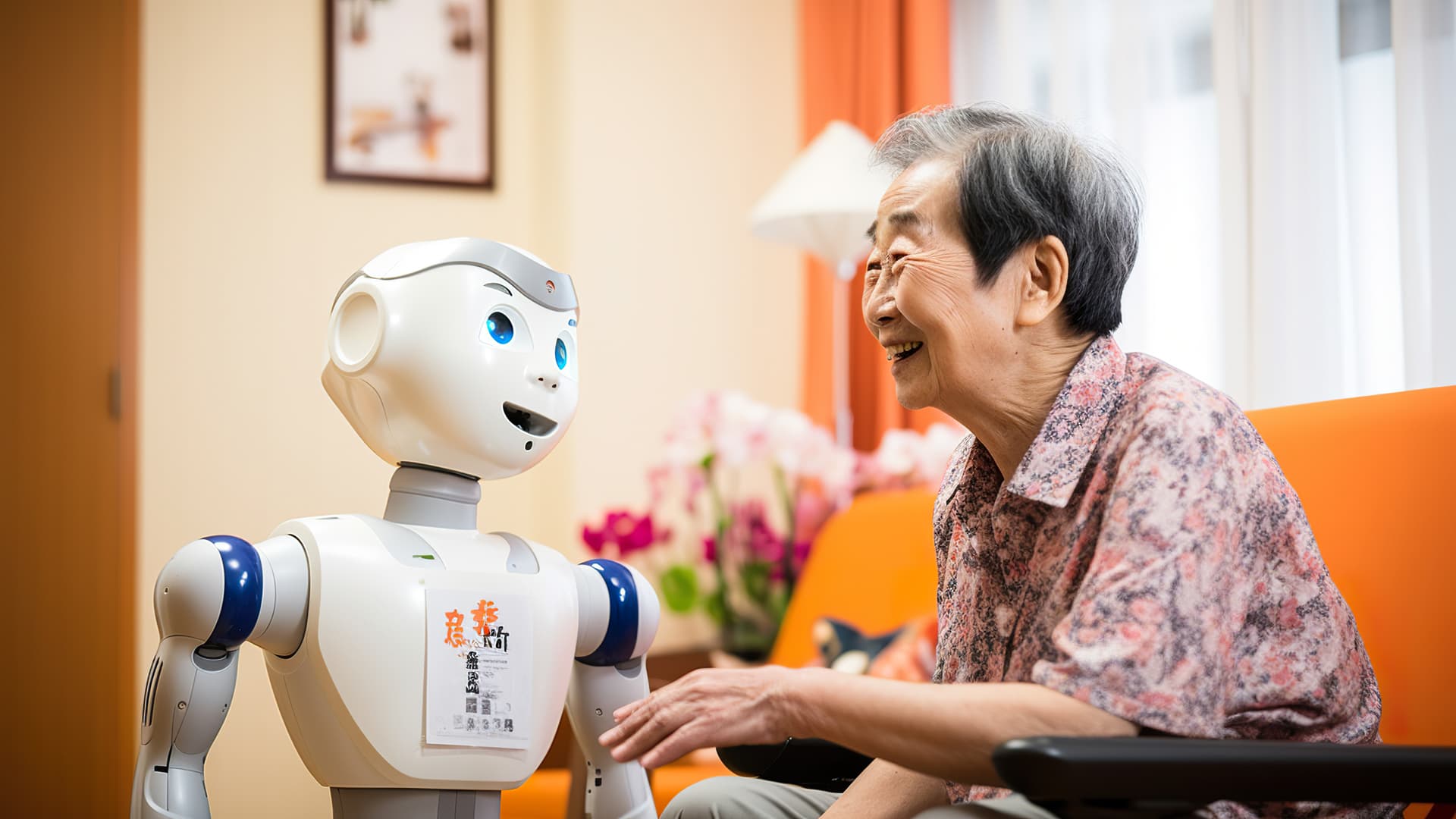Revolutionizing Dementia Care: The Role of Cognitively Assistive Robots
Navigating the complex world of dementia care, where the number of affected individuals is projected to soar to 55 million globally, the urgency for pioneering and transformative solutions has never been greater.
To meet this pressing demand, socially assistive robots are emerging as invaluable partners in long-term care settings. These robots do more than just offer assistance; they provide cognitive engagement and emotional support to both individuals living with dementia and their caregivers, enhancing mental wellness across the board.
Recent findings, innovative solutions, and hurdles in the field of robotics for dementia care were discussed at the recent webinar titled “Cognitively Assistive Robots for Dementia Care,” featuring experts from prominent organizations and educational institutions including Tombot, Inc., the University of Minnesota Duluth, University of Waterloo, University of Illinois Urbana-Champaign, University of Queensland, and Dalhousie University.
Introducing Jennie – A Socially Assistive Robot
Many of the most impactful solutions are often born from personal connections to the issues they aim to address, infusing a heartfelt dimension into the development of innovative support systems for those in need.
At Tombot, Inc., Tom Stevens and his dedicated team are channeling their creativity and technology into “Jennie,” a socially assistive robotic dog specifically designed to offer companionship and promote oxytocin production in individuals facing dementia. With a clear mission to enhance the lives of elderly individuals, Tombot’s philosophy centers on harnessing technology to upgrade the well-being of those dealing with cognitive challenges.
“Our commitment lies in creating Jennie, a socially assistive robot focused on delivering companionship and fostering oxytocin release in individuals with dementia,” remarks Tom Stevens, CEO and co-founder of Tombot, Inc.
The Impact of Participatory Design on Meaningful Solutions
Developing impactful solutions for dementia care requires thoughtful and strategic planning. This is where participatory design—an inclusive approach that encourages active involvement from those who will benefit from the technology—plays a crucial role.
At the University of Queensland, Dr. Janet Wiles and her team lead the charge in research on dementia care, championing participatory design in technology development. Their focus is on discovering the real needs and strengths of individuals coping with dementia, stepping away from a health deficiency viewpoint.
Their initiative, “Florence,” is a unique knowledge ecosystem that merges communication tools such as music, radio, diaries, and photo frames. This project aims to foster independent living and enrich the experiences of individuals with dementia.
“Recognizing individuals’ strengths rather than merely their challenges is vital when creating technologies for those with dementia. We must ensure these technologies are user-friendly, meaningful, and prevent feelings of isolation,” stated Dr. Janet Wiles, Professor of Complex and Intelligent Systems at the University of Queensland.
Overcoming Challenges in the Development of Socially Assistive Robots
At the University of Waterloo, Dr. Moojan Ghafurian and her team explore the complexities inherent in designing socially assistive robots, focusing on emotional intelligence and personalization as key elements. Their research centers on enabling assistance with daily activities while also offering cognitive support through reminders.
The team seeks to design robots with emotionally appropriate responses and personalities. Striking a balance between emotional engagement and practical utility is essential for the successful integration of these robots into everyday life, ensuring they address both the functional and emotional needs of users.
“Social robots in healthcare should be designed to be customizable and adaptable, perceived as non-judgmental, proficient in repetitive tasks, enjoyable to interact with, and physically present,” explained Dr. Moojan Ghafurian, Assistant Professor at the University of Waterloo.
It is crucial also to incorporate research findings when developing solutions for the elderly. Dr. Aria Khan and her team from the University of Minnesota revealed valuable insights indicating that robots can significantly boost cognition and mood among individuals with dementia. Their study, which involved pre/post testing and electrodermal activity analysis, highlights intriguing gender differences in responses to robotic interactions, marking a considerable advancement in elderly care.
“Robots can drastically enhance cognition and mood in dementia patients, as evidenced by our pre/post testing and analysis of electrodermal activity data,” highlighted Dr. Aria Khan, Professor at the University of Minnesota Duluth.
This insightful online webinar underscores the critical need for continued research and innovation in the realm of socially assistive robots for dementia care. The discussions highlighted the necessity of participatory design that recognizes individuals’ strengths beyond just their symptoms while spotlighting the importance of emotionally intelligent, customizable robotic companions capable of conveying both messages and emotions, ultimately transforming and enhancing the daily lives of those requiring dementia support.
AI for Good Health Innovation & Creativity Robotics for Good Share This Post Copy link Link copied! Facebook Twitter LinkedIn WhatsApp Email






